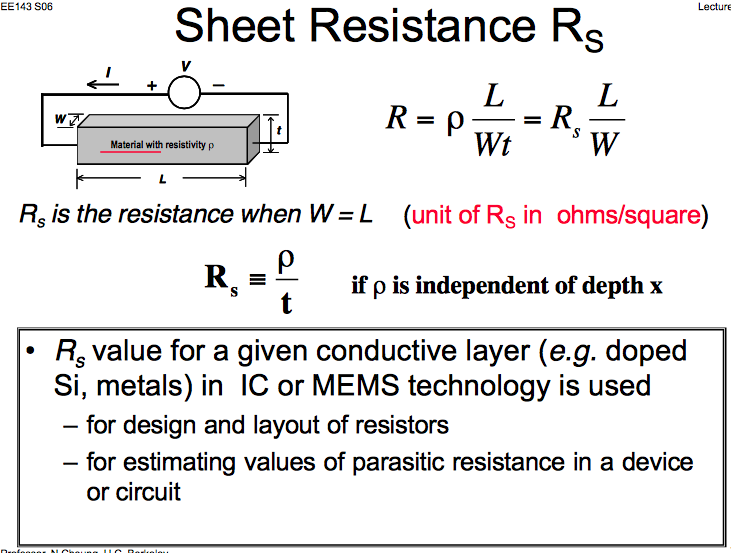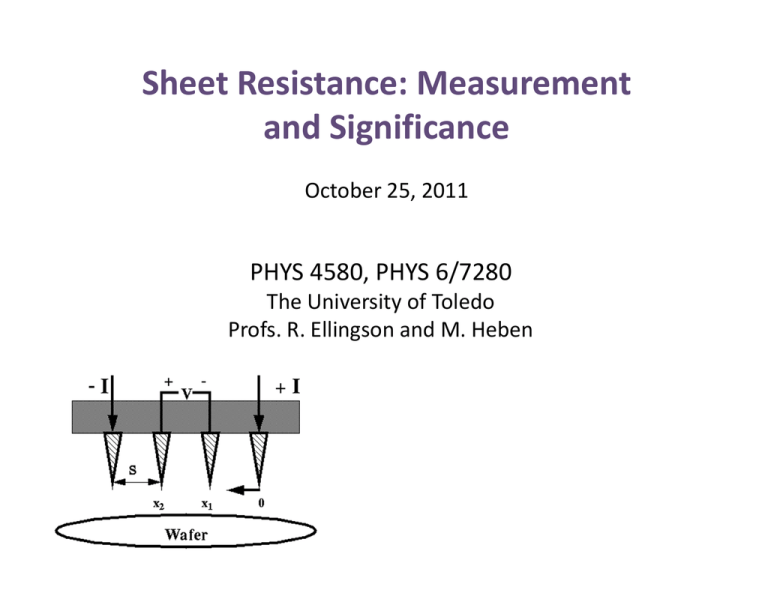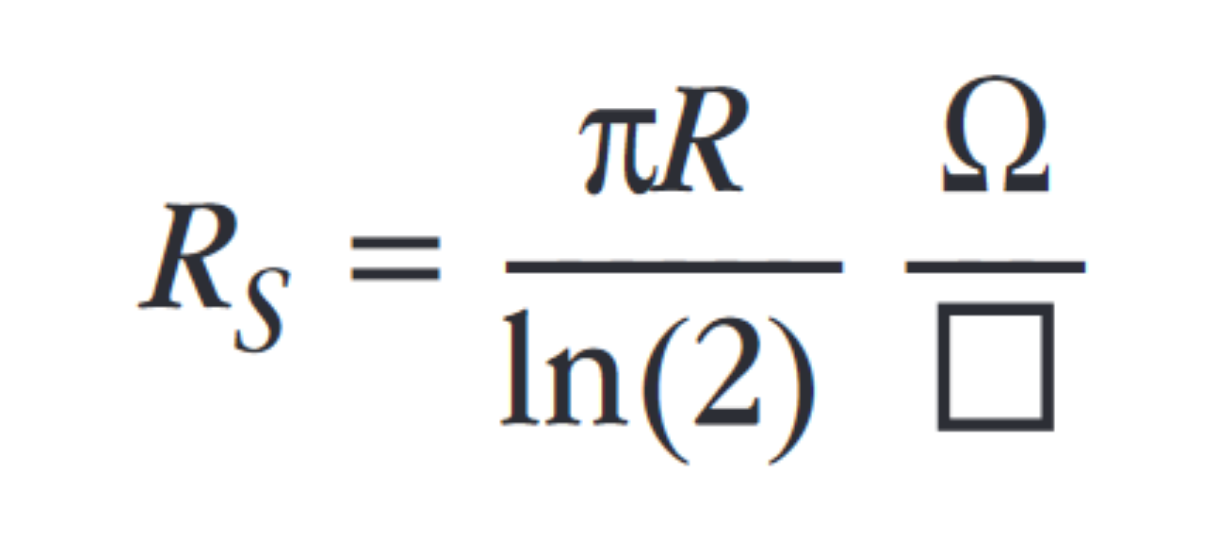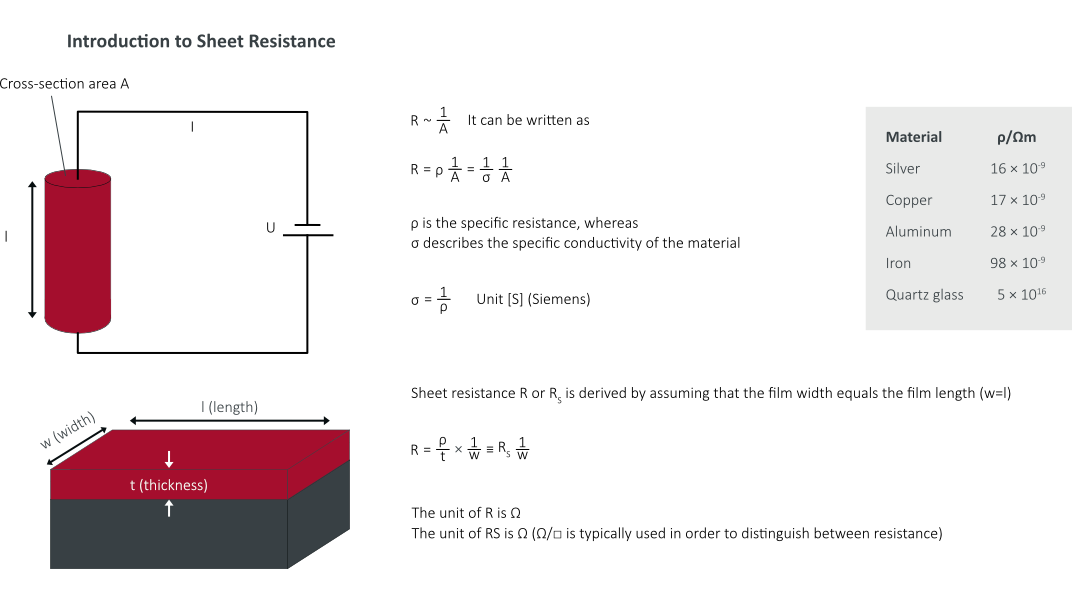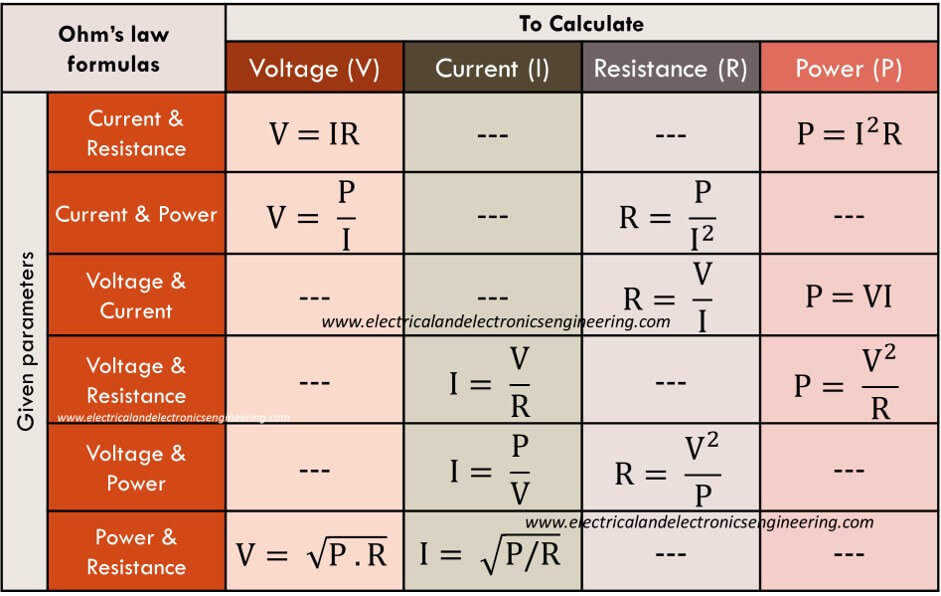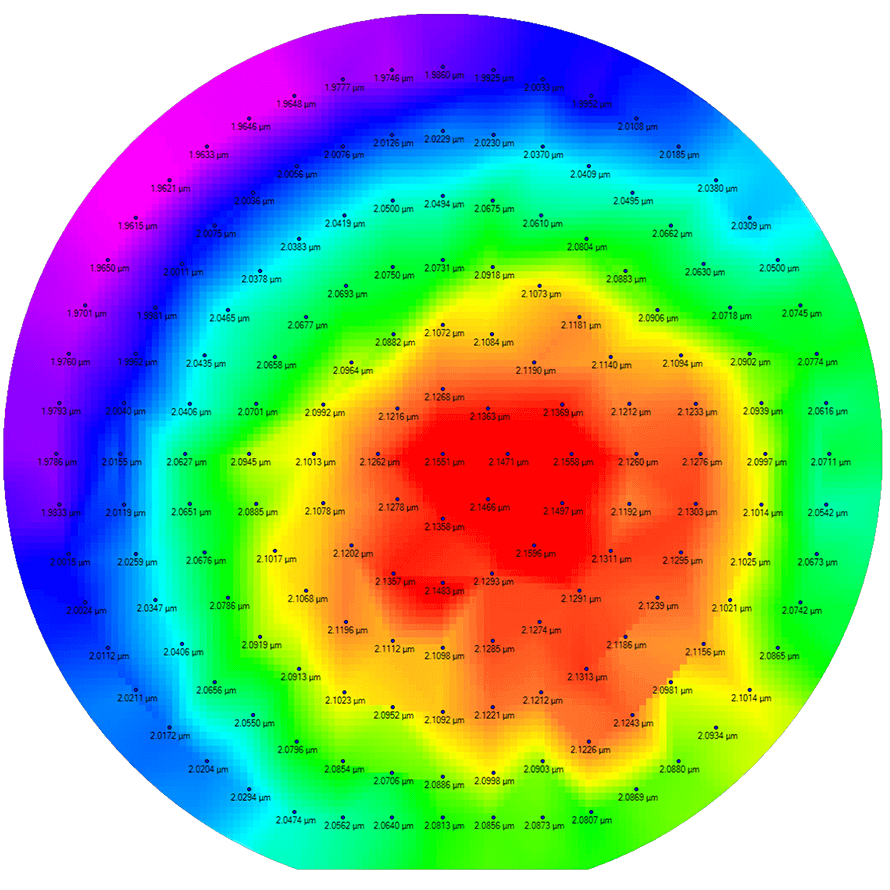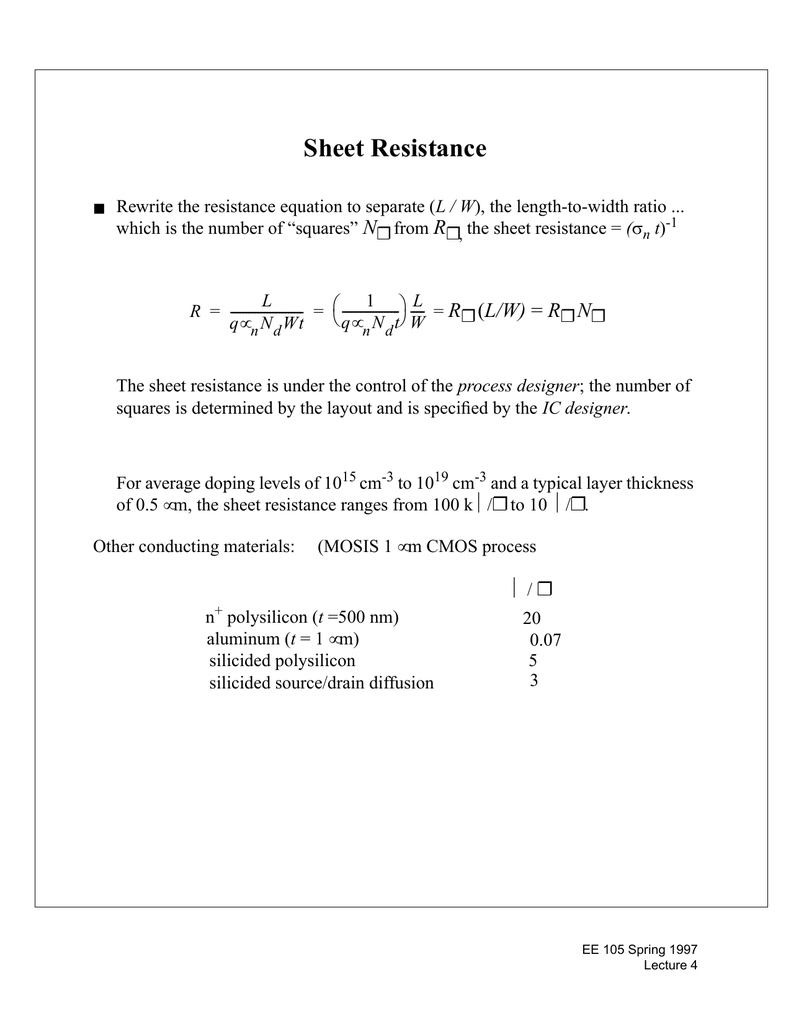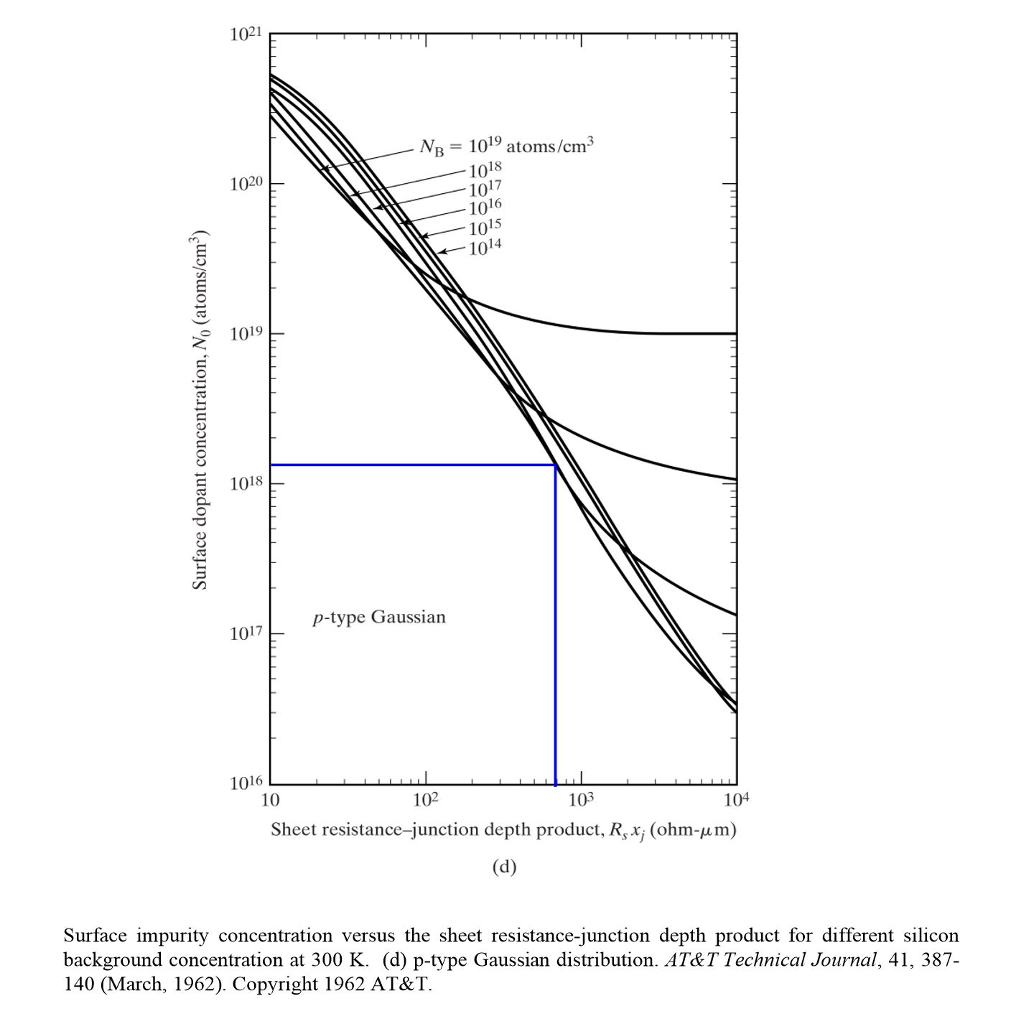Sheet Resistance Formula
Sheet Resistance Formula - Four point probe based instruments use a long established technique to measure the average resistance of a thin layer or sheet by passing current through the outside two points of the probe and. Frequently you do not know t. Sheet resistance is a special case of resistivity for a uniform sheet thickness. The sheet resistance can then be calculated using the following equation: Current in 1 & out 4 and voltage measured on 2 and 3. Commonly, resistivity (also known as bulk resistivity, specific electrical resistivity, or volume resistivity) is in units of. R s is the sheet resistance, δv is the change in voltage measured between the inner probes, and i is the current applied between.
Sheet resistance is a special case of resistivity for a uniform sheet thickness. The sheet resistance can then be calculated using the following equation: Four point probe based instruments use a long established technique to measure the average resistance of a thin layer or sheet by passing current through the outside two points of the probe and. Current in 1 & out 4 and voltage measured on 2 and 3. Commonly, resistivity (also known as bulk resistivity, specific electrical resistivity, or volume resistivity) is in units of. R s is the sheet resistance, δv is the change in voltage measured between the inner probes, and i is the current applied between. Frequently you do not know t.
Sheet resistance is a special case of resistivity for a uniform sheet thickness. Four point probe based instruments use a long established technique to measure the average resistance of a thin layer or sheet by passing current through the outside two points of the probe and. The sheet resistance can then be calculated using the following equation: Commonly, resistivity (also known as bulk resistivity, specific electrical resistivity, or volume resistivity) is in units of. Current in 1 & out 4 and voltage measured on 2 and 3. Frequently you do not know t. R s is the sheet resistance, δv is the change in voltage measured between the inner probes, and i is the current applied between.
EE143 S06 Lecture Sheet Resistance Rs R p WIt
Current in 1 & out 4 and voltage measured on 2 and 3. Four point probe based instruments use a long established technique to measure the average resistance of a thin layer or sheet by passing current through the outside two points of the probe and. Frequently you do not know t. R s is the sheet resistance, δv is.
Sheet Resistance Measurement and Significance
Sheet resistance is a special case of resistivity for a uniform sheet thickness. The sheet resistance can then be calculated using the following equation: Four point probe based instruments use a long established technique to measure the average resistance of a thin layer or sheet by passing current through the outside two points of the probe and. Commonly, resistivity (also.
Performing van der Pauw Sheet Resistance Measurements Using the
The sheet resistance can then be calculated using the following equation: Sheet resistance is a special case of resistivity for a uniform sheet thickness. Commonly, resistivity (also known as bulk resistivity, specific electrical resistivity, or volume resistivity) is in units of. Frequently you do not know t. R s is the sheet resistance, δv is the change in voltage measured.
SURAGUS Information on Sheet Resistance Measurement
The sheet resistance can then be calculated using the following equation: Current in 1 & out 4 and voltage measured on 2 and 3. Frequently you do not know t. R s is the sheet resistance, δv is the change in voltage measured between the inner probes, and i is the current applied between. Commonly, resistivity (also known as bulk.
L8B What is Sheet Resistance; Calculate Sheet Resistance YouTube
Four point probe based instruments use a long established technique to measure the average resistance of a thin layer or sheet by passing current through the outside two points of the probe and. Frequently you do not know t. The sheet resistance can then be calculated using the following equation: R s is the sheet resistance, δv is the change.
Ohm's Law Formula Sheet Electrical and Electronics Engineering
Commonly, resistivity (also known as bulk resistivity, specific electrical resistivity, or volume resistivity) is in units of. R s is the sheet resistance, δv is the change in voltage measured between the inner probes, and i is the current applied between. Four point probe based instruments use a long established technique to measure the average resistance of a thin layer.
Sheet Resistance Mapping Solutions for research on Surfaces and
The sheet resistance can then be calculated using the following equation: Four point probe based instruments use a long established technique to measure the average resistance of a thin layer or sheet by passing current through the outside two points of the probe and. Current in 1 & out 4 and voltage measured on 2 and 3. Commonly, resistivity (also.
What is the difference between resistance and resistivity?
Four point probe based instruments use a long established technique to measure the average resistance of a thin layer or sheet by passing current through the outside two points of the probe and. Current in 1 & out 4 and voltage measured on 2 and 3. The sheet resistance can then be calculated using the following equation: Frequently you do.
Sheet Resistance
Four point probe based instruments use a long established technique to measure the average resistance of a thin layer or sheet by passing current through the outside two points of the probe and. Current in 1 & out 4 and voltage measured on 2 and 3. The sheet resistance can then be calculated using the following equation: Commonly, resistivity (also.
1. Sheet Resistance In extrinsic material, the sheet
Four point probe based instruments use a long established technique to measure the average resistance of a thin layer or sheet by passing current through the outside two points of the probe and. Frequently you do not know t. Current in 1 & out 4 and voltage measured on 2 and 3. Commonly, resistivity (also known as bulk resistivity, specific.
R S Is The Sheet Resistance, Δv Is The Change In Voltage Measured Between The Inner Probes, And I Is The Current Applied Between.
Commonly, resistivity (also known as bulk resistivity, specific electrical resistivity, or volume resistivity) is in units of. The sheet resistance can then be calculated using the following equation: Sheet resistance is a special case of resistivity for a uniform sheet thickness. Frequently you do not know t.
Four Point Probe Based Instruments Use A Long Established Technique To Measure The Average Resistance Of A Thin Layer Or Sheet By Passing Current Through The Outside Two Points Of The Probe And.
Current in 1 & out 4 and voltage measured on 2 and 3.
